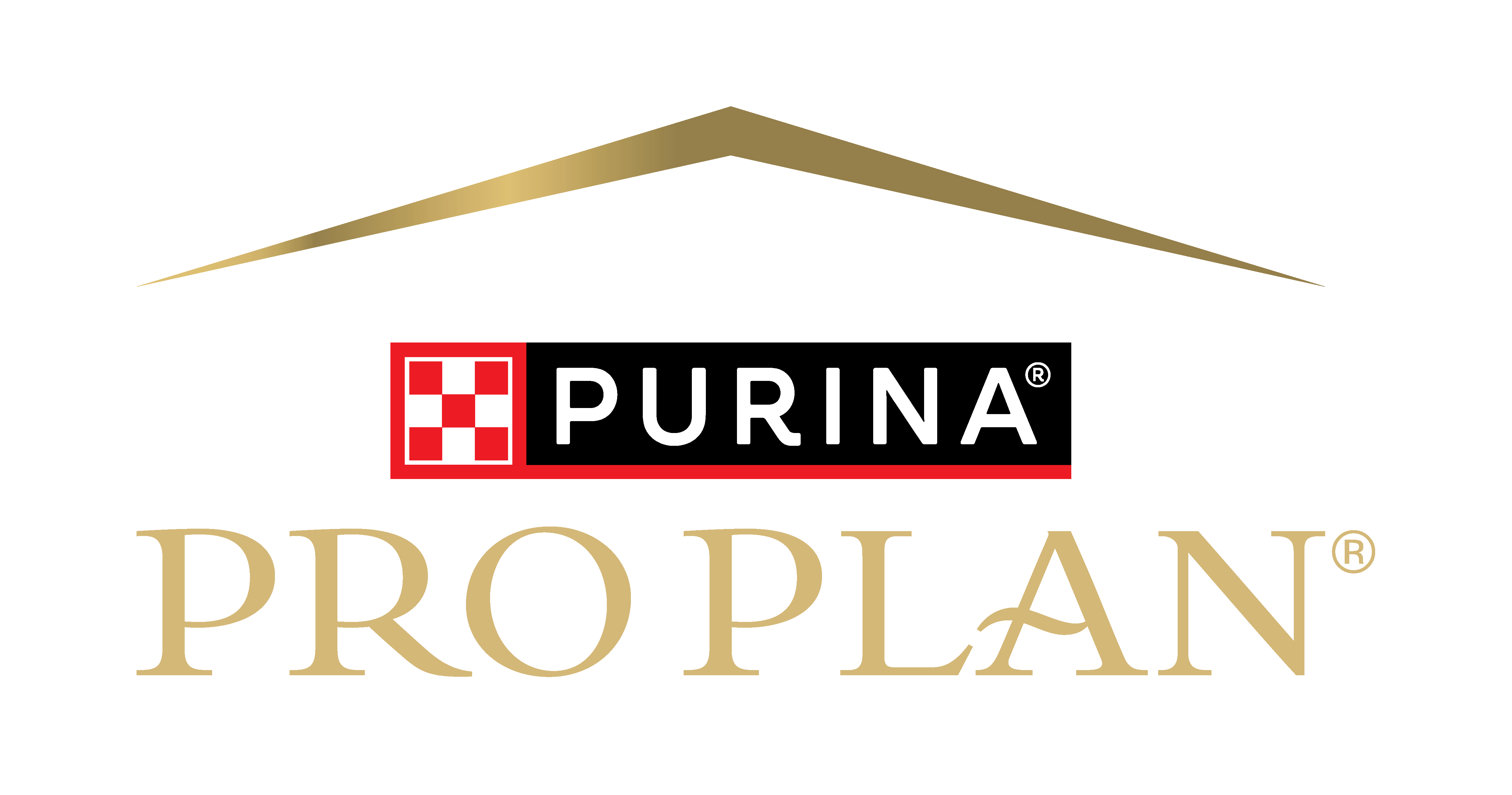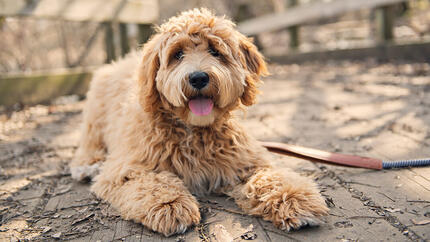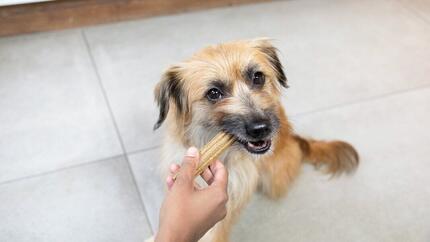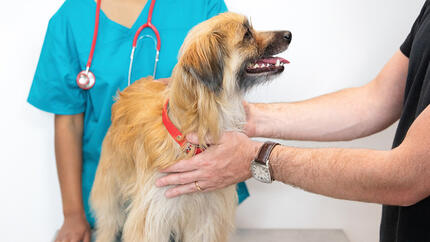BOAS in Dogs: Causes of Breathing Problems in Flat-Faced Breed Dogs



Flat-faced dogs may be lovely and come with amazing personalities and give cute snuffles but unfortunately, often struggle to breathe because of the anatomy of their heads. The breathing difficulties in these breeds have a name: brachycephalic obstructive airway syndrome or BOAS for short. Keep reading to find out what BOAS is and how you can help your dog.
What is BOAS in dogs?
BOAS affects flat-faced dogs and refers to a lifelong breathing difficulty caused by their short noses, narrow nostrils and windpipes and soft palatte issues. This means that they breathe through small, compressed passages, causing many dogs with BOAS to have to pant to get all the air they need.
Not all short-nosed dog breeds or individuals are affected by BOAS, or may be more minimally affected by BOAS, although breathing is normally a common struggle for these pups – as is temperature regulation.
Which breeds are affected by dog BOAS?
Brachycephalic syndrome appears more commonly in flat-faced dogs such as (but not limited to):
- French Bulldog
- Bulldog
- Pug
- Pekinese
- Boston Terrier
- Shih-Tzu
- Cavalier King Charles Spaniel/King Charles Spaniel
The Kennel Club Respiratory Function Grading Scheme for Breathing Problems in Flat-Faced Dog Breeds
The Kennel Club UK has created the Respiratory Function Grading scheme (RFG) that allows pet owners and dog breeders of French Bulldogs, Pugs and Bulldogs to book an assessment for BOAS. – These are the most popular breeds affected by BOAS – and often the most seriously affected.
This rates each dog on a scale from 0-3, with 0 being totally unaffected (even if short nosed), and 3 indicating that the dog is clinically affected and shows severe signs of BOAS.
This helps owners find out if their dog is affected by BOAS and if so, how badly.
More importantly, it allows breeders to lower the risk of producing puppies with BOAS. Grade 3 dogs shouldn't be breed from at all – and Grade 2 dog should only be bred to Grades 0 or 1 (if at all). These grades can however change throughout a dog’s life and so should be re-tested every two years for their lifetime.
As from 2025, all Pugs, French Bulldogs and Bulldogs will have to have a valid RFG assessment result to compete at Crufts, and those assessed as Grade 3’s will not be able to enter. This needs to be kept up to date through the dog’s showing career.
To get your dog checked out, head over to the Kennel Club’s website and search on the RFG Scheme to find out how to book an appointment or talk to your vet.
What are the symptoms of brachycephalic syndrome in dogs?
BOAS in dogs' manifests through a range of breathing problems including:
- panting.
- Wheezing.
- Noisy breathing including snorting and snoring.
- Rapid breathing.
- Blue gums.
- Needing regular breaks during walks.
- Inability to exercise normally.
- Overheating in the summer resulting from an inability to properly cool off.
- Physical collapse.
Make sure you visit your vet if any of these symptoms suddenly appear. Breathing problems in flat-faced dog breeds need to be resolved urgently as low oxygen levels can put your pet’s life in danger.
Can BOAS in dogs be treated?
Depending on the severity the breathing problems, your vet might recommend a weight loss regimen or surgery. In most cases however, your dog will need careful management thought their life (which may be shortened as a result).
Weight loss for dogs with brachycephalic syndrome
If your dog is overweight, losing a few pounds can make an enormous difference. They’ll have less weight to carry around which could improve their breathing. Diet changes as well as a carefully designed exercise routine will help your dog keep their weight under control.
Surgery for dogs with BOAS
Surgical procedures might also be recommended to help your dog breathe better. If your dog’s nostrils are tight, a surgery to widen them can be performed. Another type of procedure in these cases is to shorten the elongated palate to allow more air to reach the windpipe. You should know that every surgery involves risks, and your vet will talk you through all the options and what to expect.
Managing BOAS in dogs
Help them stay cool in hot and humid weather
Sweating helps us humans cool off, but this is not an option for our canine friends. Instead, dogs use panting as a mechanism to avoid overheating. Due to the unique shape of their heads, short-nosed breeds will often struggle when breathing and so it is important to avoid taking them out in hot or even warm weather. For example, during the summer you can aim for early mornings or late evenings when the temperatures are not as high. Take a bottle of water with you, just in case your dog needs to cool off and stay in the shade where possible.
If you plan to take your dog out of the country for any reason, make sure you consult your vet.
Keep an eye on their weight
Obesity can lead to breathing difficulties no matter your dog’s breed, but it’s especially dangerous for pups that already find breathing challenging because of their short noses. For this reason, its best to always be mindful of your dog’s body condition score and to make sure it doesn’t get too high. Always talk to the vet before making any changes to your dog’s diet and make sure you get the go ahead for including more exercise in their routine.
Exercise your dog carefully
Exercising your dog helps keep your best friend fit and gets rid of those extra pounds. However, pet owners who have a flat-faced dog in their family need to be extra careful when it comes to the intensity and duration of their exercise sessions. Even if you’re just going out for a simple walk, make sure the distance is not too long for your dog to handle and take plenty of breaks.
Use a harness not a collar when your dog is on a lead
Collars can restrict the airflow, especially when attached to a lead. So, it’s always better to use a harness when while out and about.
Brachycephalic syndrome can be tough news for pet owners and impacts hugely on canine welfare, but there are ways to improve your dog’s quality of life.
If you want to find out more about your dog’s health, check out our guides on common health issues in Pugs as well as on the health problems French Bulldogs are prone to.
Explore our dog brands:
Related articles:
















